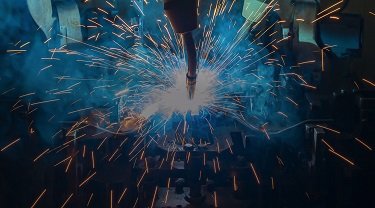
How high-quality partnerships help CoolIT Systems grow globally
Randy Coates admits that Calgary’s CoolIT Systems’ technology was ahead of its time when the company launched 15 years ago.
Founded in 2001 by three gamers who experimented with liquid cooling to enhance the performance of their supercharged desktop computers, today, CoolIT’s technology liquid cools more than 2 million central processing units (CPUs) in various systems around the globe.
“We created a cooling system for the gaming market a decade before we knew the very same principles could be applied to the high performance computing marketplace,” says Coates, CoolIT’s Chief Operating Officer.
Waiting for the market to catch up to the company’s technology has been both challenging and rewarding. It has also provided invaluable learning experiences – some of the biggest being that success is global and partnerships are crucial.
For the gaming marketplace CoolIT Systems has partnered with a California-based technology company Corsair Components, for the global distribution of their white-labeled solutions.
“You can walk into most electronic stores in any country around the world and find Corsair-branded technology that we have manufactured in Shenzhen, China,” says Coates.
Another learning experience in CoolIT’s export journey is a discovery that nearly all roads lead to China in the hardware industry. This revelation led CoolIT to engage two contract manufacturers in Shenzhen.
“If you are manufacturing hardware, you have to end up in China,” adds Coates. “The sooner you get that part of your enterprise working properly, the easier it is to actually sell goods across the globe.”
That is unless you are exporting to Brazil.
“Brazil is a very protectionist country,” Coates explains. “We didn’t realize that one import tariff there is 100 per cent. You have to do at least some manufacturing in that country or it’s outrageously expensive to sell into that market.”
Looking forward, CoolIT sees data centers among its biggest potential growth markets. With technology advances from Intel, AMD and NVIDIA producing ever-more powerful chips that require more electricity and generate additional heat as a byproduct, super-powered data centers will inevitably need new and improved technology to keep the computing units operating properly.
Enter CoolIT Systems direct contact liquid cooling (DCLC™) solutions and the movement away from traditional fan-cooled servers.
“Virtually every hardware manufacturer in the world at some stage will liquefy their servers – it is simple physics,” Coates says.
In keeping with strategic partnerships and in an effort to capitalize on this trend, CoolIT recently entered into a strategic alliance with STULZ, a German manufacturer of environmental control equipment that has locations in over 140 countries.
Combining CoolIT and STULZ technology has given birth to a unique global value proposition described as a Chip-to-Atmosphere data center cooling solution.
“We take the heat out of the computer at source, transfer it into liquid form, and then move it out to the atmosphere with STULZ’s technology. None of our competitors can offer this highly cost-effective value proposition,” he says.
This partnership has also solved one of CoolIT’s biggest challenges – reaching as well as servicing new customers worldwide.
“The math just doesn’t work,” says Coates. “We could never hire enough sales reps and service technicians to cover the planet. We needed to find a partner that was already going into all of these data centres.”
The partnership will also expand the company’s global footprint.
“By the end of 2016, we will have more sales and support resources in one country than we currently have in our entire company,” Coates says.
While CoolIT has unlocked the door to a new world of opportunity, Coates remains cautiously optimistic about the future.
“The hardware business is very hard and there’s a reason why most venture capitalists seldom invest in it,” he says. “There’s a very big prize if you can figure it out, like Apple did with its iPhones, but it is a very daunting challenge.”
















